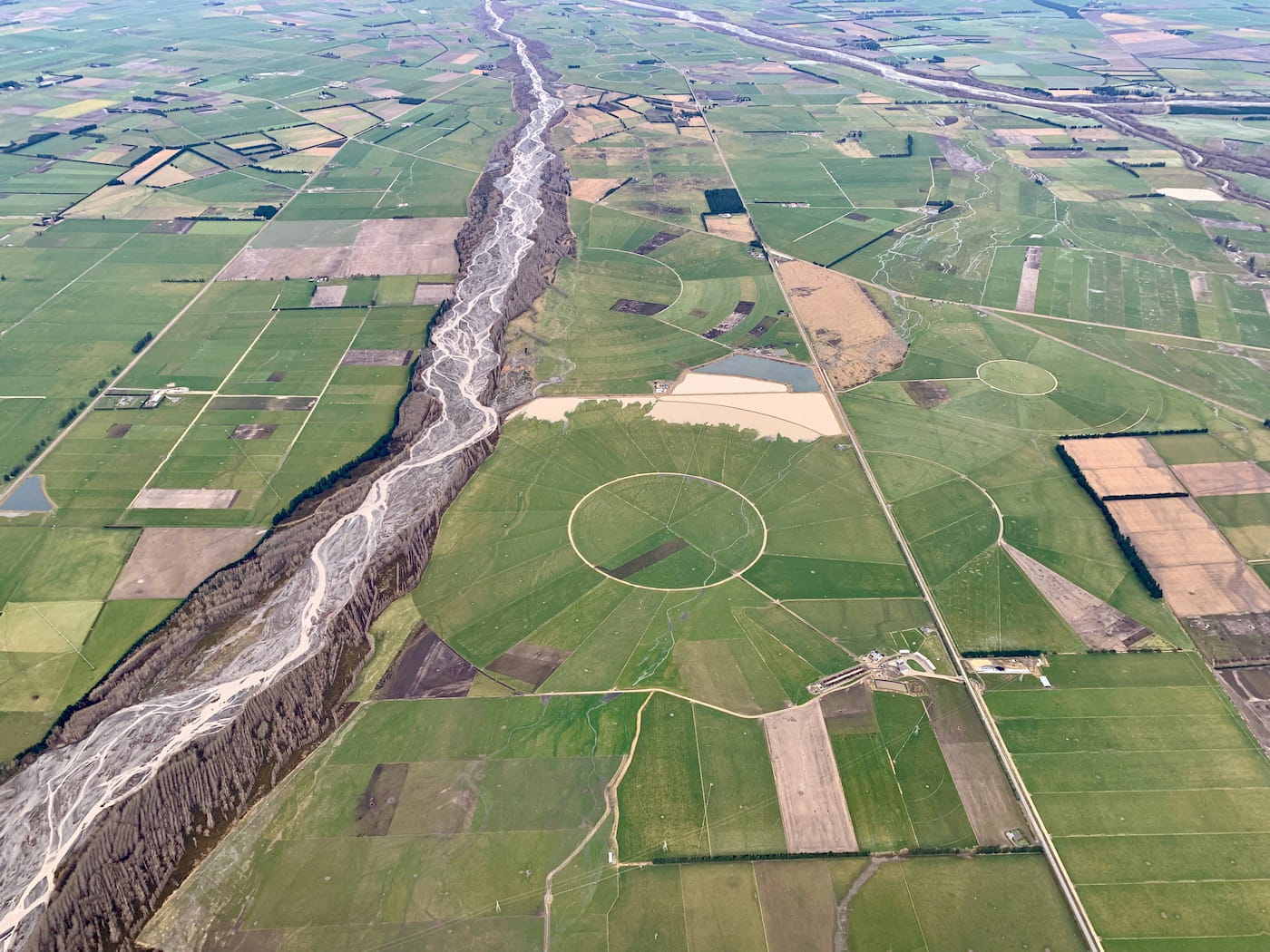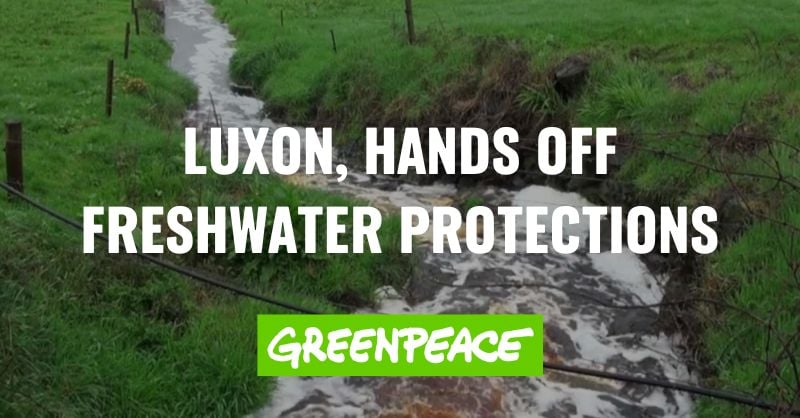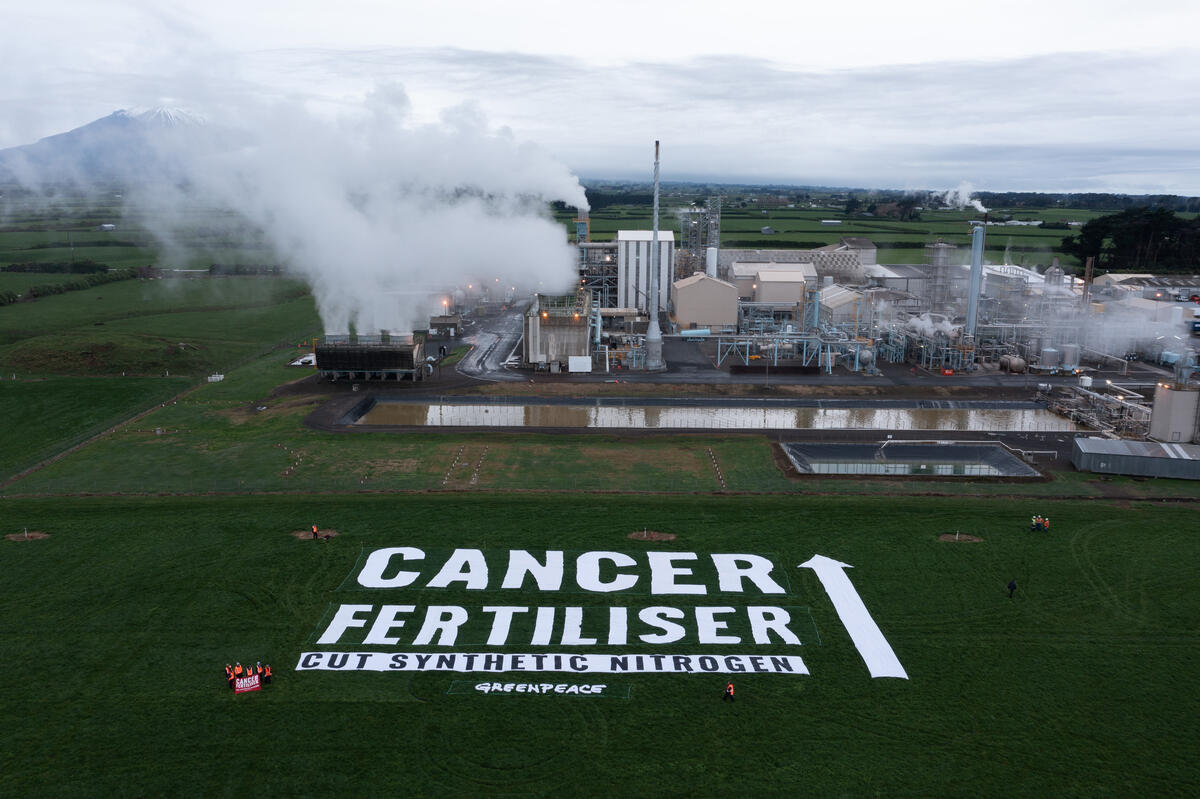The new Government must put people’s health first, by addressing the growing problem of farm contaminants in our water supply.
Just days before our new Government was announced, Canterbury’s Chief Medical Officer of Health warned that increased irrigation in Canterbury is putting newborns at risk from water contamination. Dr. Alistair Humphrey was talking about new data, which show that nitrate levels increased in a quarter of Canterbury’s monitored wells over the last 10 years.
Growing numbers of dairy cows – and the irrigation schemes that drive this – have pushed NZ’s nitrate pollution to record levels.
And it’s likely just the tip of the iceberg. Nitrate can take several decades to leach through to the deeper groundwater, which means the full effects of the last two decades of intensive dairying have yet to be felt.
All over the world, the rapid expansion of industrial agriculture is threatening access to safe drinking water. Also last week, new research from the the U.S. raised the alarm about high nitrate concentrations in rural American drinking water, and its possible links to cancer.
According to the U.S. National Cancer Institute, “Studies have shown increased risks of colon, kidney, and stomach cancer among people with higher ingestion of water nitrate and higher meat intake compared with low intakes of both.”
They also point to studies which show a possible correlation between nitrate consumption and thyroid and ovarian cancer in women.
This matches the findings uncovered in our own report, Sick of Too Many Cows, from June this year. The report’s key recommendation is to stop the expansion and intensification of dairying in NZ. And that means withdrawing all public funding for irrigation schemes.
Here in New Zealand, levels of nitrate in drinking water are rising to concerning levels. Nitrogen pollution in NZ has recently worsened more than in any other OECD country.
Cow urine is a major culprit, contaminating groundwater in Canterbury and across rural New Zealand. New irrigation projects – which, more often than not, require vast amounts of Government money to go ahead – are enabling dairy expansion in parts of the country where dairy cows just don’t belong. Irrigation sucks huge volumes of water out of our rivers and lakes, then returns it to the environment, heavy with nitrates, bacteria and viruses from cow effluent.
During the election, the Labour Party committed to axing the previous Government’s $480 million subsidy for irrigation schemes. Following through on this promise will be critical for protecting our rivers and our health.
A responsible Government, that prioritised public health over private profit, would be using taxpayers’ money more wisely. For example, by helping NZ farms to transition to regenerative ways of farming.
Regenerative farming is about working with the land, not against it. It reverses our centuries-old habit of stripping rich natural environments bare simply to produce food for humans and, in the process, misguidedly destroying the natural systems we depend on. Not to mention leaving next to nothing behind for the wildlife with which we share this planet.
Instead, regenerative farming recognises that our farms are actually part of a whole interdependent ecosystem – a system that, if we maintain it, makes us richer not poorer. It not only reduces pollution, but actually restores health to soils, improves water quality and brings back native wildlife. It makes the land more resilient to drought, flooding and pests. And, importantly for our NZ farmers, it reduces costly inputs that are driving record levels of farm debt.
A number of pioneering regenerative New Zealand farmers are already restoring their land and boosting their profits in the process. The new government needs to be paying close attention.
New Zealanders are done with intensive dairy, polluted rivers, and the risk they pose to community health. Change will take courage, but if we want to actually live the pure New Zealand image we trade so heavily on, it’s high time we made a start.



